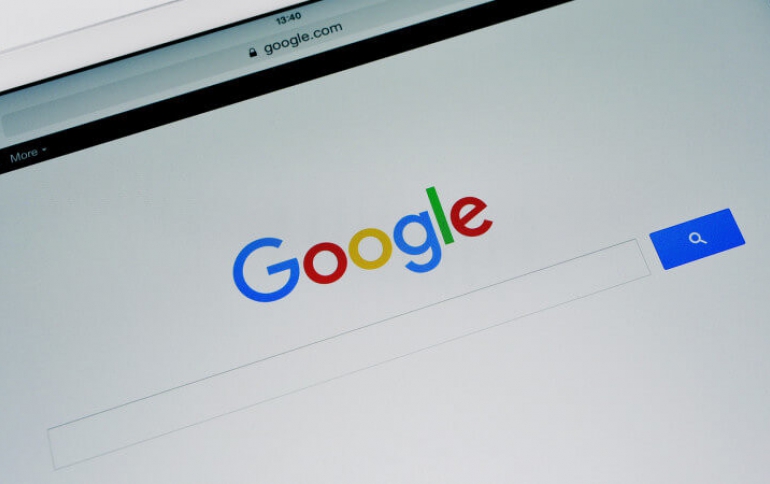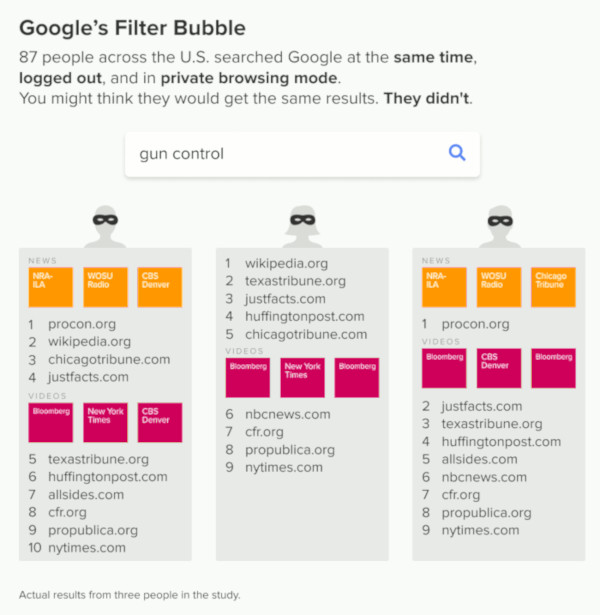
Google Results Are Tailored to Each User Even When They're Logged Out, Study Shows
It is not secret that Google numerous services offer valuable data related to its users in order to offer personalization. A study claims that the personalization of Google Search results is unavoidable no matter if you are logging out of your Google account or use the private browsing “incognito” mode.
The study was conducted by Google competitor DuckDuckGo, so is could be regarded as 'biased' to some extend. In any case, it deals with Google's "filter bubble" problem- the manipulation of your search results based on your personal data.
In practice this means links are moved up or down or added to your Google search results, necessitating the filtering of other search results altogether. These editorialized results are informed by the personal information Google has on you (like your search, browsing, and purchase history), and puts you in a bubble based on what Google's algorithms think you're most likely to click on.
For the study, DuckDuckGo asked volunteers in the U.S. to search for "gun control", "immigration", and "vaccinations" (in that order) at 9pm ET on Sunday, June 24, 2018. Volunteers performed searches first in private browsing mode and logged out of Google, and then again not in private mode (i.e., in "normal" mode). DuckDuckGo compiled 87 complete result sets — 76 on desktop and 11 on mobile. The study was restricted to the U.S. because different countries have different search indexes.
The study found the following:
- Most participants saw results unique to them. These discrepancies could not be explained by changes in location, time, by being logged in to Google, or by Google testing algorithm changes to a small subset of users.
- On the first page of search results, Google included links for some participants that it did not include for others, even when logged out and in private browsing mode.
- Results within the news and videos infoboxes also varied significantly. Even though people searched at the same time, people were shown different sources, even after accounting for location.
- Private browsing mode and being logged out of Google offered very little filter bubble protection. These tactics simply do not provide the anonymity most people expect. In fact, it's simply not possible to use Google search and avoid its filter bubble.

The study seems to prove that there’s no easy way to use Google Search without the software seemingly trying to determine who you are and whether it can better serve your needs. On the other hand, Google has made a fantastic job in terms of returning the most relevant results when you search for a topic, and that has made it the world's best search engine.
Google says that search results can change by the minute and sometimes even by the second, especially for news topics. Google also says that personalization is done a small fraction of the total number of queries entered into search, and that relying on recent queries is often to determine context for a search, like when a word may apply to a sports team and a city.
Google has been personalizing search results for every user, even those without a Google account, way back in 2009 using an anonymous cookie that would take into account information like using your location, search history, and other factors.
It is certain that Google's current search technology and algorithms, which are currently aided by complex artificial intelligence software, are sophisticated enough to leave almost anyone outside of understanding them and most importantly make reliable estimations of what they return after a search query.




















